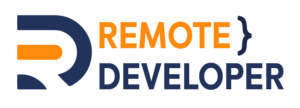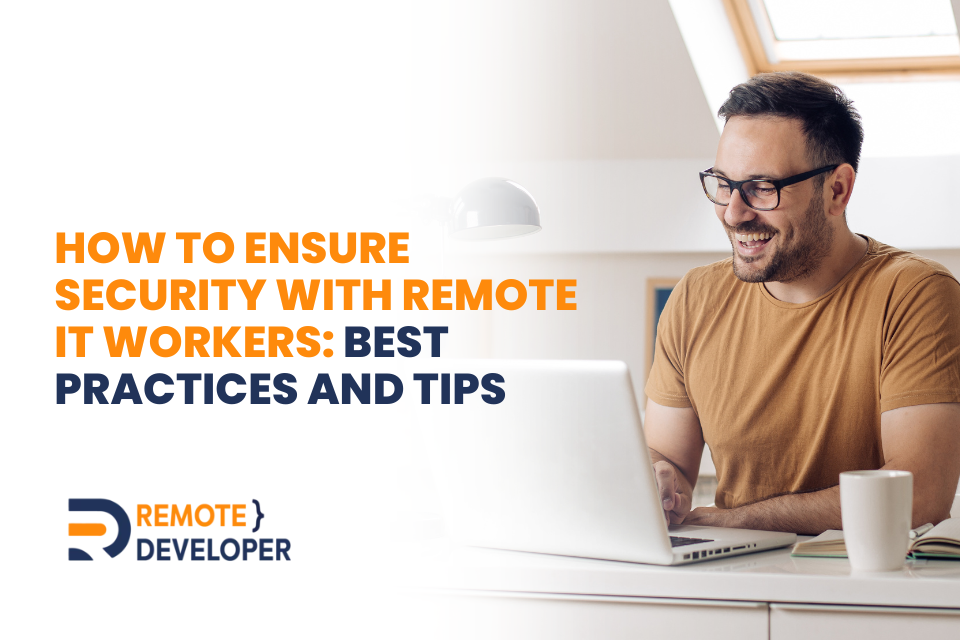One of the most important things is security for remote IT workers. Not only do they handle sensitive data, but they’re also the prime target of cyberattacks that can easily cause irreversible damage to your company, which is why flimsy remote work security is a cause for concern in many businesses.
Unfortunately, the common misconception when hiring a remote developer is that security breaches are a common occurrence that cannot be prevented. The truth is that security with remote workers is possible.
I know what you’re thinking, “but how can I be so sure my data won’t be breached? I can’t talk to these people in person and I don’t know if it’s them tinkering around the software.”
You don’t have to panic just yet. Ensuring security is simple and there are a few steps to take before throwing in the towel. Below are the best practices for enhanced security for your employees and your company’s protection.
Why is it Important to Secure Remote IT Workers and Protect Company Data?
Security for remote IT workers and your company data is a critical aspect of your business’ growth. It doesn’t matter if your business is a startup or a multinational corporation: data security is a necessity.
This is because your company’s data, which includes private information of your consumers, employees, and other private information, would be left susceptible to data breach. Should your company experience a data breach, stolen information could be sold illegally, blackmailed, or even for identity theft.
Stolen information isn’t the only problem with flimsy data security. It also makes your company vulnerable to disruption in the company’s business overall code structure. This is why in remote work security, the best practices are often advised and implemented to prevent any possible damage to a business’s growth and stability.
Understanding the Security Risks
Learning about the common security risks is crucial before you begin enhancing security for remote IT workers. There are a handful of security risks that could create a big enough access for trespassers into your private data.
Even more so when dealing with data in remote work. Some risks include weak passwords that can be guessed, phishing, and even insider threats.
The good thing about understanding these risks is that you can find a better way to solve them beforehand. Taking the time to learn about each possible risk is a daunting task. However, you can cut many concerns in half by following these safety tips for remote work employees.
5 Tips for Implementing Robust Security Policies
Listed below are the best tips and practices to ensure the high-quality and advanced security policies of your company data. The ideal strategy is to utilise all these tips simultaneously to have a guaranteed preventive method for security breaches.

Hardware Security
The interesting thing about security for remote IT workers is that it isn’t just about the software. Hardware security is the first thing on our work-from-home security checklist that employers and employees should take note of.
For remote workers who use smartphones and other personal devices, it’s even easier for cybercriminals. In addition, hackers can gain access to the systems of remote workers because they use smartphones and other portable devices while on the job. To prevent this, many companies opt to provide company devices to remote workers with the proper shields to prevent viruses from being implanted.
When computers and other gadgets aren’t shielded, hackers can plant viruses on them. However, this problem can be avoided by implementing hardware security keys, eliminating the possibility of password compromise due to hardware flaws.
Password Restrictions
The most undermined form of security for remote IT workers is passwords. Some cybercriminals can easily guess passwords and would prefer to do so rather than manoeuvre through complex security walls.
As a result, the easiest person to target would be remote employers who have access to the Internet. The worst part is that this grants the cybercriminals access to private company data, the code structure, and other authorised access that the employee would have. They can either steal the information, disrupt your business process, or even commit other crimes with your data.
To ensure that this doesn’t happen the best method is to use multi-factor authentication. That way, any attempt to access their accounts will be alerted to both employees and employers. By doing so you can easily isolate the account and prevent further damage.
Backup / Recovery Systems
While prevention is better than a cure, unforeseen changes can cause issues within your software. Whether or not it’s an issue of security for remote IT workers, backup and recovery systems are used to prevent the complete loss of any data during a breach.
Backup of your company’s data is a common practice for many companies. The reason behind it is to still retain the original copies of your data before any breach occurs. Especially since losing the data, IT infrastructure, and other systems could result in critical damage to your company.
Meanwhile, recovery is also a strategy for repairing any damages caused by cyberattacks. There are chances when a breach occurs and their main goal is to disrupt your company’s workflow and information. Data recovery retrieves the corrupt data caused by these breaches to resume your business process and strategy.
Discuss and Enforce Data Security Policies
Awareness is essential to your company’s security for remote IT workers. Being made aware of the different instances and situations where they can be susceptible to breaching through phishing scams and other methods can prevent possible damage.
That’s why discussing security tips for employees and the IT security policies your company uses. Examples of these phishing scams are emails, text messages, malware, and other forms. Data encryption should be airtight and your employees should be aware of this. Especially since the easiest way to access a company’s private data is through its employees.
Monitor Network Security Systems and Updates
VPN for remote work is the best way to monitor any traffic in your company’s hardware and remote environment. VPN stands for virtual private network, which helps your hardware’s connection to the internet enhance its cybersecurity.
By doing so your sensitive information cannot be tracked, especially with public networks. Granted this should also come in with regular updates and monitoring of your employee’s activities.
By doing so you can easily track which suspicious activity is lurking within your company data and where it’s coming from. Once you’ve confirmed whether or not it’s your employee who’s been tinkering with the data, you can continue taking your risk-mitigating steps.
Conclusion
There are a wide variety of reasons why security for remote IT workers is a necessity. However, it’s understandable if the technical requirements to boost your security aren’t your strong suit. That’s why remote IT workforce articles like the ones on our blog page can help you learn more!
Begin your journey to learn all the best practices updated regularly regarding your company’s data and systems!

